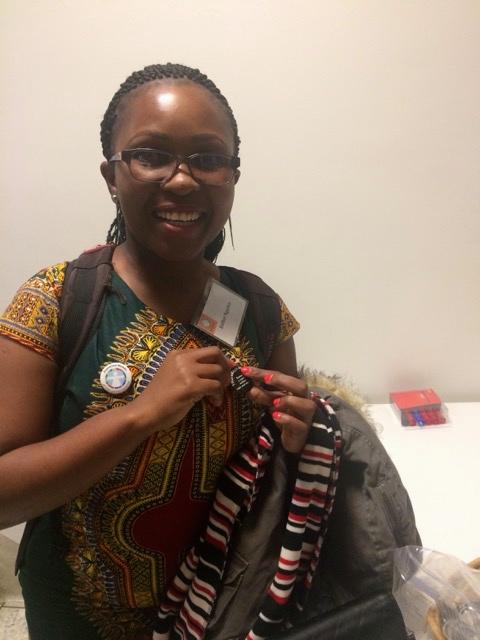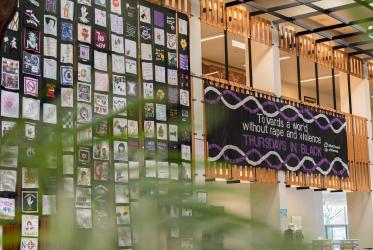Traveling from Tanzania, Esther Ngulwa brought a sense of hope regarding gender equality as she spoke on 10 March, two days before the start of the 62nd Session of the Commission on the Status of Women (CSW62) in New York City.
“Today I’ll be sharing my experience from my country about the contribution the church has made toward women and equality,” said Ngulwa.
“In my country, religious institutions are key to ending gender inequality and injustice because people trust more in religious institutions than in any other institutions.”
Tanzanian social worker, Ngulwa, is a trainer with the programme Women Involved in Life Learning From Other Women, an educational intervention for women living with HIV and AIDS.
She is also an ambassador from the World Council of Churches (WCC) Eco-School.
She represented the WCC during a panel discussion with the theme “Prophetic Vision, Experiential Change: How can faith-rooted partners mobilize to empower rural women and girls?”
Ngulwa described movements of women and men in Tanzania - many of them led by churches - that have brought positive change to her country.
“For example, the number of girls who attend school has increased,” she said. “Girls were not allowed to attend school before because people in society could not see the importance of sending girls to school. But now women go to school just like men.”
She believes women are now able to challenge a patriarchal system that existed in her community for a long time.
“Society is now aware of these negative impact of this,” she said, naming the Christian Council of Tanzania as a forum through which women and men are addressing gender equality.
“We are building awareness in the communities about the impact of female genital mutilation,” she said.
“We are opening health centers in rural areas. And it is though religious institutions that these community developments and, eventually equality, will be attained.”
The panel discussion was organized by Ecumenical Women, a coalition of Christian denominations and ecumenical organizations, which have status with the Economic and Social Council of the UN’s Department of Public Information.
Ngulwa and the other panelists explored the unique role of churches and faith-based groups in advocating for gender equality.
Panelist Canon Dr Jill Hopkinson, representing the Church of England, offered a reminder that all human beings are created equal in God’s image.
“Being made in the image of God confers dignity to every human being,” she said. “A failure to respect human dignity is a failure to love one another.”
Ranjita Christie Borgoary, a panelist from India who was representing the Lutheran World Federation, said that gender policy is not just for UN meetings in cities but also for residents in rural villages - both female and male residents.
“When we talk about gender quality, we mistakenly understand gender as an issue for women,” Borgoary said. “It’s an issue for all people.”
Ecumenical Women released a statement to the CSW62, taking place from 12-23 March in New York City.









